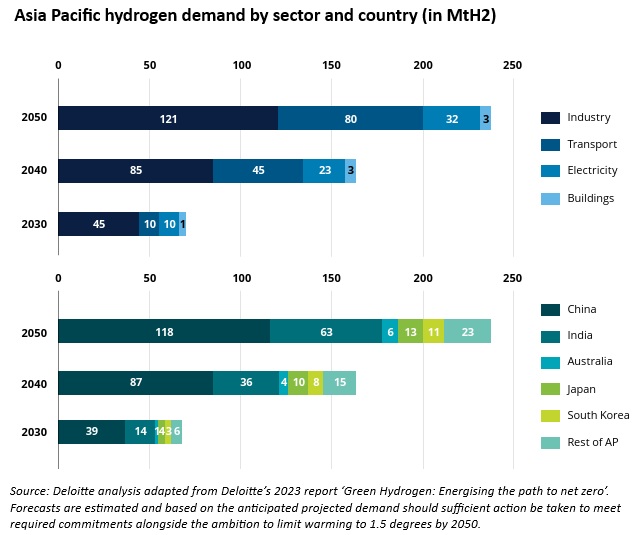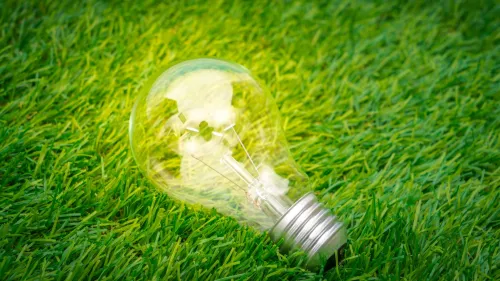
Asia Pacific urged to tap hydrogen market as part of net-zero targets
Shift towards 'future fuels' to require massive investments and policy intervention.
The Asia Pacific region will have to invest at least US$79t by 2050 to achieve net-zero, according to a Deloitte report that shines a light on opportunities in the hydrogen market.
In its "Accelerating Net-Zero: Critical Opportunities in Asia Pacific's Climate Policy" report, the professional services network noted: "Deloitte estimates the hydrogen market could grow to US$632b annually in Asia Pacific (53% of the global total). Rich natural resources and renewable energy capacity position the region as both a leading source, and key market for, future fuels.
"Australia stands out as a primary exporter of clean hydrogen products, whilst China and India are expected to scale up production for their domestic markets. Meanwhile, Japan and South Korea are set to become major future fuel importers, driving industry and grid decarbonisation."

According to Deloitte, hydrogen demand in Asia Pacific is set to grow to 66 Mt by 2030 and to 236 Mt by 2050. Clean hydrogen is amongst the so-called 'future fuels', which also include synthetic fuels and biofuels.
"Most major economies have hydrogen strategies in place and are beginning to tackle aviation and maritime fuels," Deloitte reported. "Meeting demand, however, requires substantial investment. Developing the region’s hydrogen value chain alone needs investments of US$130b annually over the next 25 years, with further investment in other future fuels.
"This means not just investing in production facilities, but renewable energy, transport, infrastructure, and even new vessels and engines. By comparison, fossil-fuels industries attracted US$1.1t investment in 2024."
In Deloitte's view, policy intervention will be critical in unlocking private capital and accelerating change towards attaining net-zero, a major part of which is the shift away from fossil fuels.
Broadly, policymakers are urged to accelerate policy and regulation, establish sector strategies and institutions, develop new markets (e.g. the hydrogen market), remove barriers to growth, and foster regional cooperation.
"With a diverse mix of resource-rich producers and a growing need for alternative fuels across the region, there is opportunity for Asia Pacific nations to work together to accelerate the future fuel economy," Deloitte said.














